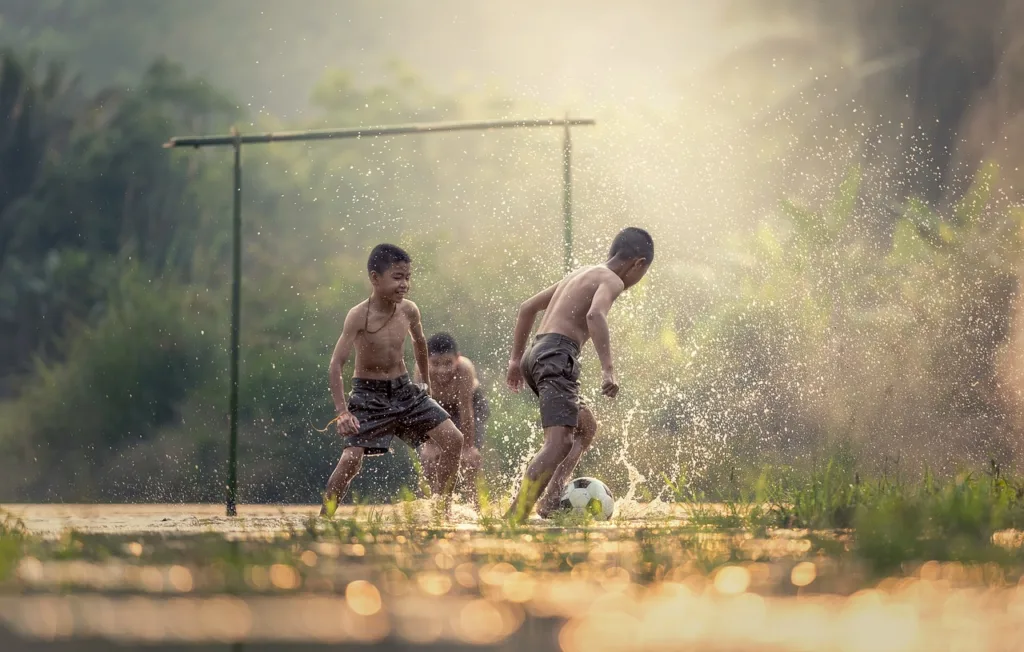Are you concerned about your child spending too much time playing outside? While outdoor play is important for children’s physical and mental development, excessive play can lead to a variety of issues, including injury, boredom, and social isolation. In this guide, we’ll explore some practical tips and strategies to help you balance your child’s outdoor playtime and promote healthy habits.
Set Clear Rules and Boundaries
One of the most important things you can do as a parent is to set clear rules and boundaries around your child’s outdoor playtime. This includes establishing designated play areas, such as a backyard or playground, as well as specific times of day for play. You may also want to limit the amount of time your child spends playing outside each day, depending on their age and activity level.
Encourage Active Play
While it’s important to set limits on your child’s outdoor playtime, it’s also essential to encourage active play when they are outside. This means providing your child with opportunities to engage in physical activities, such as running, jumping, and climbing. Not only does active play promote physical health, but it also helps children develop gross motor skills, coordination, and balance.
Supervise Your Child’s Playtime
To ensure your child’s safety while playing outside, it’s crucial to supervise their playtime. Depending on your child’s age and maturity level, you may need to be more or less involved in their play. For younger children, you may need to stay nearby and actively participate in their play, while older children may need less direct supervision but still require occasional check-ins.
Provide a Variety of Play Materials
To prevent boredom and encourage creativity, it’s important to provide your child with a variety of play materials when they are outside. This could include toys, sports equipment, art supplies, and nature exploration tools. By offering a range of materials, you can help your child develop diverse interests and skills, and keep them engaged in their playtime.
Encourage Social Play
Playing outside also provides children with opportunities to develop social skills and make new friends. Encourage your child to engage in social play, such as team sports, group games, or playdates with other children. This can help your child develop important social skills, such as cooperation, communication, and empathy.
Limit Screen Time
One reason children may spend too much time playing outside is because they have limited access to screens and other electronic devices. While technology can be a valuable tool for learning and entertainment, excessive screen time can have negative impacts on children’s mental and physical health. Limiting screen time can help promote more active, creative, and social forms of play.
Create a Safe and Inviting Outdoor Space
To encourage your child to play outside, it’s important to create a safe and inviting outdoor space. This could mean investing in playground equipment, creating a garden or outdoor art area, or adding seating and shade for relaxation. By making the outdoor space fun and appealing, you can help your child develop positive associations with outdoor play.
Conclusion:
In conclusion, outdoor play is an essential part of children’s physical, social, and emotional development. While it’s important to set clear rules and boundaries around your child’s outdoor playtime, it’s also crucial to encourage active, social, and creative forms of play. By providing your child with a safe and inviting outdoor space, a variety of play materials, and opportunities for social interaction and active play, you can help them develop healthy habits and a love for the outdoors.
FOR MORE VALUABLE TIPS BUY OUR PARENTING COURSES AT https://www.kidzoot.com/courses/
CONSULT YOUR PERSONAL PARENTING SOLUTIONS VIA APPOINTINTMENT AT https://www.kidzoot.com/appointment-booking/

